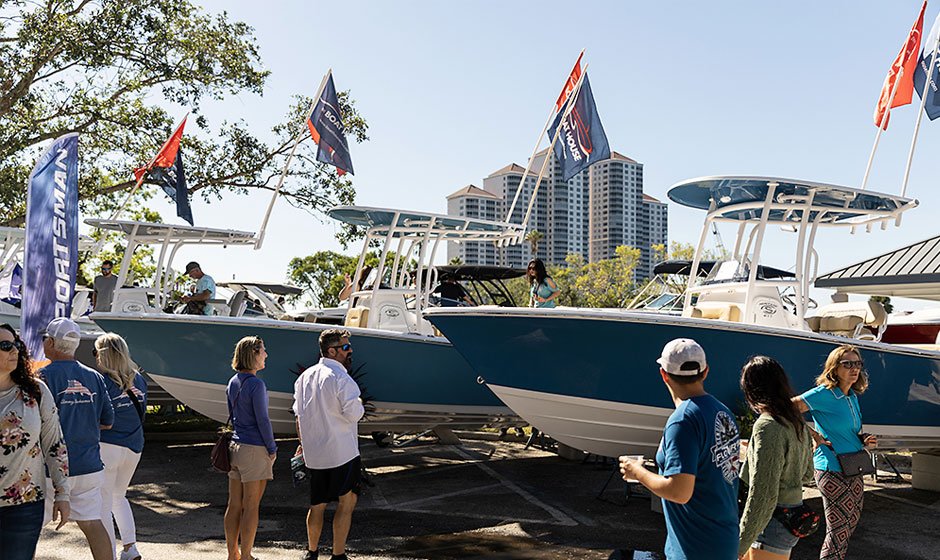Charting Your Course: Insider Tips for Purchasing a Boat

Table of Contents
- Determine Your Budget
- Identify the Type of Boat You Need
- Research Different Brands and Models
- Financing and Insurance Options
- The Importance of a Sea Trial
- Get a Professional Survey
- Registering and Maintaining Your Boat
Determine Your Budget
Before entering the boat market, it is essential to establish the amount you are prepared to invest. Consider the initial price of buying, along with continued costs like upkeep, gasoline, parking, and insurance. Having a well-defined budget can limit your choices, making purchasing easier. For instance, purchasing a boat isn’t just about the price tag; there are also docking fees, seasonal storage, and potential upgrades to factor in. For example, you might find a range of pontoons for sale in Missouri that suit different budget constraints, making this decision even more critical.
Understanding your financial boundaries will prevent you from falling for a boat that might become a financial burden. It can also direct you toward financing options and help you plan for the necessary savings ahead of your purchase. Owning a boat is a commitment, and budgeting wisely sets the foundation for a positive ownership experience.
Identify the Type of Boat You Need
Boating needs can vary greatly depending on the intended use. Will you be sailing on calm lakes or braving the open seas? Do you plan to fish, water ski, or simply relax? Understanding the intended use will guide you in choosing between sailboats, powerboats, pontoon boats, and even a bass boat for sale that suits your fishing adventures. For instance, fishing enthusiasts might look for boats with built-in rod holders and live wells, while families might prioritize ample seating and safety features.
Take into account the dimensions of the boat. Bigger boats provide extra room and features but demand advanced navigation skills and higher upkeep expenses. While smaller boats are more manageable and affordable, they may lack the comfort required for longer journeys. Consider your usual boating pursuits and create a checklist of essential characteristics to aid in narrowing your options.
Research Different Brands and Models
After determining the type of boat you require, explore various brands and models. Explore reviews, participate in boating forums, and consult with existing boat owners. This part of the research is crucial because it allows you to understand the advantages and disadvantages of various choices and prepares you for what to anticipate from different producers.
Moreover, boat exhibitions can offer beneficial practical experiences with various models. These occasions frequently allow comparing various boats in one location and having direct conversations with manufacturers and dealers. Conducting thorough research will allow you to make an informed decision and select a ship that suits your needs and preferences.
Financing and Insurance Options
Understanding your financing and insurance options is essential. Many lenders offer boat loans, so shopping around for the best rates is important. Additionally, boat insurance is necessary to protect your investment and can vary widely based on the type of boat and its use. A good insurance policy will cover damages, theft, and liability, safeguarding you against potential losses.
Financing choices extend to tailored marine financing services as well as traditional loans. Knowing the various terms and rates can help you save money over time. Ensure you thoughtfully contemplate your financial decisions, evaluate offers from various providers, and choose the best alternative for your financial situation. Consider the interest rates, loan terms, and any extra fees connected to boat financing to get a full grasp of the total expenses.
The Importance of a Sea Trial
Always take a boat for a sea trial before purchasing it. This test ride lets you experience how the ship handles things, alerts you to potential issues, and ensures that it fits your needs. Pay attention to the engine’s performance, the vessel’s maneuverability, and overall comfort. For example, a boat that looks perfect on paper may not perform as expected on the water or have ergonomic issues that only become apparent during a test ride.
During the sea trial, check for smooth acceleration, hull stability, and the condition of the onboard equipment. Test all systems meticulously, from navigation tools to bilge pumps. It’s also an excellent opportunity to see how the boat behaves in various water conditions, particularly important for those planning to navigate diverse environments. A thorough trial ensures you won’t encounter any unpleasant surprises after purchase.
Get a Professional Survey
When buying a used boat, it is essential to get a survey done by a professional. A skilled marine surveyor will inspect the condition of the boat, evaluate its worth, and identify any issues. This unbiased assessment can help you avoid costly repairs in the future and give you assurance in your purchase choice. Even if a boat looks to be in good shape, hidden issues may go undetected by someone needing more experience.
Surveyors check everything from the hull integrity and deck fittings to the electrical systems and engine condition. Their detailed report offers a comprehensive view of the boat’s health. It can serve as a useful bargaining tool, allowing you to discuss any discoveries with the seller prior to settling on the price. Getting a professional survey is a valuable investment to ensure the seaworthiness and reliability of your new boat.
Registering and Maintaining Your Boat
Upon buying a boat, ensure it is registered in compliance with the local laws. Performing routine maintenance, such as inspecting the engine, cleaning, and preparing for winter, will ensure your boat stays in excellent shape and lasts longer. Creating and adhering to a regular maintenance routine is essential for stress-free boating. Regular tasks such as examining the propeller, inspecting the battery, and replacing the oil are necessary for efficient functioning. Also, regular maintenance leads to safety and comfort. Keep all the necessary equipment like marine refrigeration system and marine pump installed on your boat from the beginning.
Adequate storage, particularly during non-boating months, helps avoid weather-related harm and extends the lifespan of your boat. Clean the boat frequently to avoid accumulating salt, algae, and other corrosive substances. Maintain a record of maintenance tasks to monitor maintenance and recognize trends signaling potential problems. This proactive strategy guarantees your boat stays secure, operational, and prepared for adventures regardless of location.



